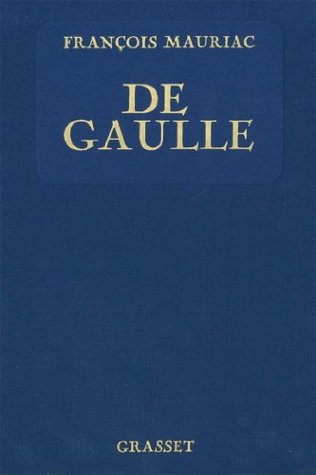 De Gaulle by Francois Mauriac, translated by Richard Howard, 229 pages
De Gaulle by Francois Mauriac, translated by Richard Howard, 229 pages
Nobel prize winning novelist Francois Mauriac's study of the career of Charles De Gaulle is less a standard biography than an extended celebration of the man who more than any other defined France in the twentieth century. Published in 1964, twenty years after the General led the liberation of Paris, six years after his inauguration of the Fifth Republic, and six years before his death, the book is crammed full of extended selections from its subject's public pronouncements, giving De Gaulle ample opportunity to explain De Gaulle.
Although as an author Mauriac was known for creating characters with profound psychological and spiritual depths, he deliberately avoids discussing or speculating on De Gaulle's private life or inner motivations, barely even referencing his life before the War. Instead Mauriac presents a portrait which seems to be less concerned with the actual man than what he symbolized for a generation who were introduced to him as a voice on the radio in their darkest hour, broadcasting defiance to the German occupiers and their Vichy collaborators. For Mauriac, De Gaulle is indissolubly connected to France by a sacred bond deeper than democracy, a concept whose echoes disturbingly resemble the rhetoric of Mussolini and Lenin, Hitler and Stalin, but Mauriac's evaluation of De Gaulle as resolutely opposed to every form of dictatorship has been vindicated by history, as have many of De Gaulle's own predictions concerning the future of Europe and the world. Ultimately, the source of Mauriac's attachment lies in his understanding of his hero as primarily a spiritual and moral rather than political leader.
No comments:
Post a Comment